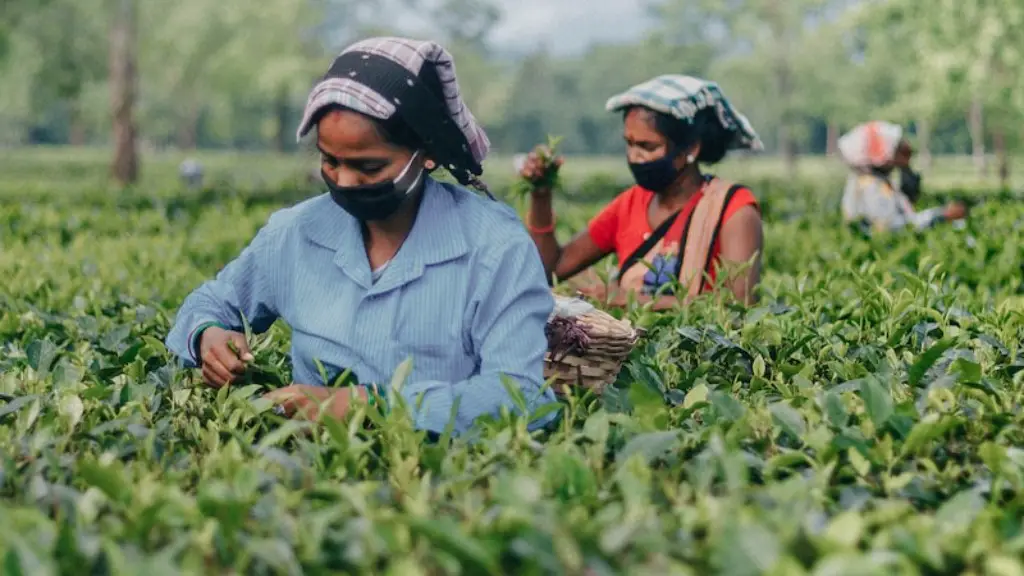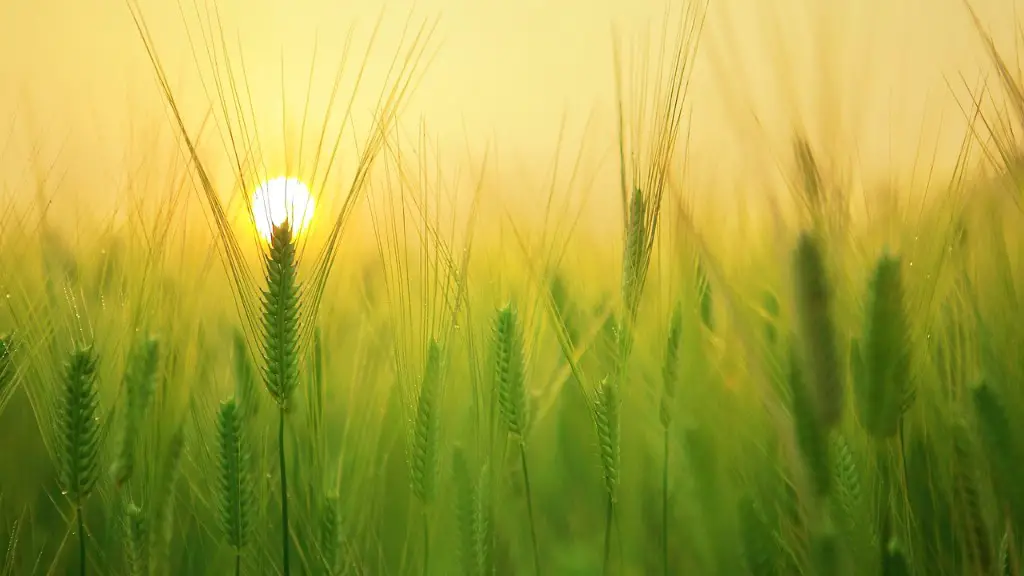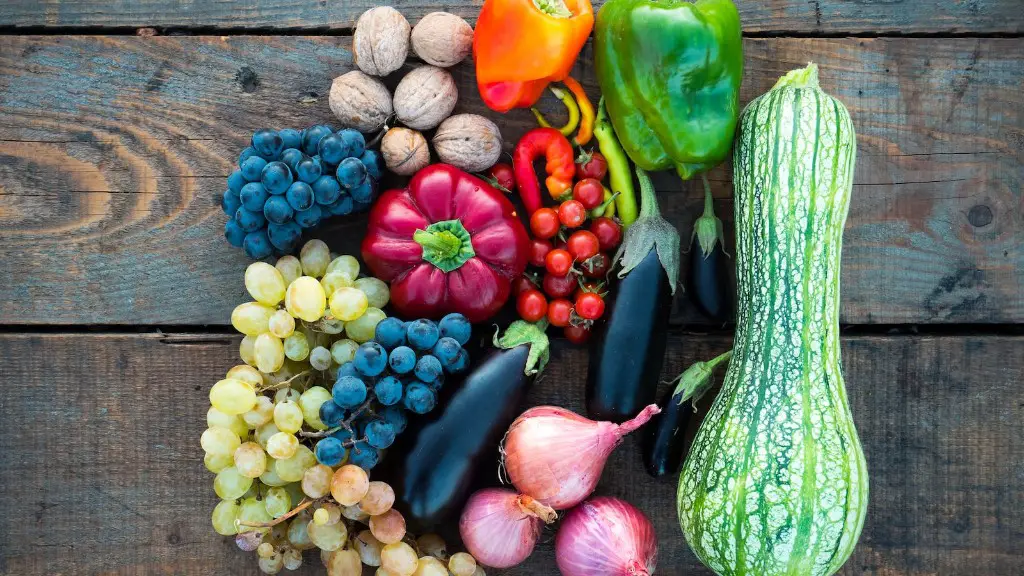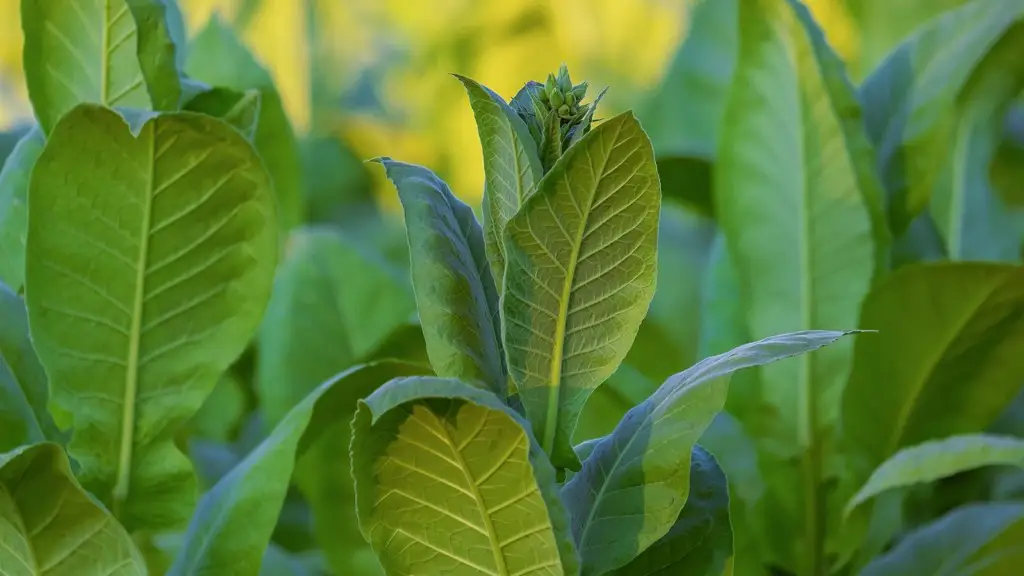Agriculture has a big impact on groundwater. It is estimated that agriculture uses 65% of the world’s groundwater.
Over-pumping of groundwater for irrigation has led to groundwater depletion in many areas of the world. This can lead to land subsidence, as well as problems with water quality.
In addition, the use of pesticides and fertilizers can contaminate groundwater. Poorly managed agricultural waste can also pollute groundwater.
Agricultural activities are a major source of water pollution in the United States. One of the main ways that agriculture affects groundwater is through the overuse of pesticides and fertilizers. Although these products are essential for crop production, they can also contaminate groundwater if they are not used properly. Pesticides can leach into the soil and eventually end up in aquifers, while fertilizers can contaminate groundwater if they are applied in excess. In addition, agricultural activities can also lead to sedimentation in aquifers, which can reduce their water-holding capacity and make them more susceptible to contamination.
How does agriculture relate to groundwater?
The growing importance of groundwater for agriculture can largely be explained by the capacity of groundwater to act as a reliable water source for irrigation, providing water on demand, while being largely unaffected by seasonal surface hydrological variation. In addition, groundwater provides a degree of water security to farmers, as it is not subject to the same weather-related risks as surface water supplies.
This is an important point to consider when thinking about the impact of irrigation on recharge. Only irrigation that uses surface water will actually lead to an increase in recharge, because irrigation that uses groundwater will just lead to a recycling of the water with no net increase. This is something to keep in mind when evaluating the impact of irrigation on the water table.
How does agriculture cause water problems
Water quality is a very important factor in determining the quality of food crops. If the water is contaminated, it can lead to illness in those who consume the crops. Therefore, it is important to make sure that the water used to irrigate crops is clean and free of contaminants.
Irrigation can move salt and other dissolved minerals to surface water. Livestock operations produce large amounts of waste, which if not properly disposed, can threaten human health as well as contribute to excess nutrient problems in streams, rivers, lakes, and estuaries.
Does agriculture cause groundwater contamination?
This is a serious problem because it can lead to contamination of our water supply. We need to be careful about how we use pesticides, fertilizers and manure, and make sure that they are not causing any harm to our environment.
Agricultural runoff is a major environmental problem. It occurs when chemicals from animal feeding operations, overgrazing, and overworking the land are washed into waterways. This can contaminate drinking water and harm aquatic life.
Which agricultural source can affect ground water?
Agricultural pollution, specifically from nitrate, is now the most common chemical contaminant in the world’s groundwater aquifers. This has serious implications for both the quality of our water supplies and the health of aquatic ecosystems. Excess nutrients from agriculture can lead to eutrophication, which causes the overgrowth of aquatic plants and algae and can ultimately degrade water quality, impact biodiversity, and fisheries.
Agricultural wastewater often contains high levels of pollutants, including nutrients, pathogens, and sediments. Improperly managed agricultural wastewater can have serious environmental impacts, including water contamination, ecological damage, and public health risks.
Over the last few decades, there have been significant advances in agricultural wastewater treatment technologies. However, challenges still remain in terms of cost, effluent quality, and resource recovery.
What is the negative effect of agriculture
This is a very serious problem that needs to be addressed. Agriculture is the leading source of pollution in many countries and it is having a devastating effect on our environment. Pesticides, fertilizers and other toxic farm chemicals can poison fresh water, marine ecosystems, air and soil. They also can remain in the environment for generations. This is a very serious problem that needs immediate attention.
Conventional farming is the type of farming that most people are familiar with. Large-scale, conventional farming focuses on intensive single crop production, mechanization, and depends on fossil fuels, pesticides, antibiotics, and synthetic fertilizers. This system yields high production levels, but it also contributes to climate change, pollutes air and water, and depletes soil fertility. While conventional farming has its advantages, it is important to be aware of its drawbacks so that we can make more informed choices about the food we eat and how it is produced.
What are 3 problems of agriculture?
We need to set the table to address the triple challenge of feeding a growing population, providing a livelihood for farmers, and protecting the environment. We need to do this by working together to find sustainable solutions that address all three challenges. We need to find ways to produce more food with less impact on the environment. And we need to make sure that farmers have a livelihood that allows them to support their families and communities.
The five environmental effects of agriculture are soil fertility loss, eutrophication of water bodies, deforestation, climate change and pesticide pollution. Farming practices such as ploughing and digging can lead to soil fertility loss as essential nutrients are lost and the soil Structure is damaged. This can lead to lower crop yields and greater reliance on chemical fertilisers. In addition, farming can lead to eutrophication of water bodies as a result of nutrients such as nitrogen and phosphorus being washed into rivers and lakes. This can lead to the growth of algae and weeds, which can reduce the quality of water and lead to the death of fish and other aquatic creatures. Deforestation is another environmental effect of agriculture, as trees are cleared to make way for farmland. This can lead to loss of habitat for animals, as well as contributing to climate change. Finally, pesticide pollution can occur when pesticides used in agriculture are washed into water bodies or blown into the air, where they can be harmful to humans, animals and plants.
What are 3 effects of agriculture
Organic farming is a way of growing crops without using harmful chemicals. This method of farming is not only better for the environment, but also for the health of the people who consume the food.
Soil degradation is a serious problem that can lead to a decline in crop yields and even complete loss of productivity. Some of the common factors for soil degradation are salination, waterlogging, excessive use of pesticides, soil structure and fertility losses, changes in soil pH, and erosion.
To prevent soil degradation, it is important to carefully manage the land and avoid practices that can cause degradation. This includes using conservation tillage practices, crop rotations, and cover crops to protect the soil, and applying fertilizers and amendments judiciously.
What is the biggest problem in agriculture?
There are a variety of problems that farmers face, but some of the most pressing include climate change, soil erosion, and biodiversity loss. Farmers must adapt their practices to cope with changing conditions, satisfy consumers’ changing tastes and expectations, and meet the rising demand for food of higher quality. Farm productivity must be increased to meet these challenges, which often requires adoption and learning of new technologies. But even with these changes, farmers must remain resilient against global economic factors that can affect their livelihoods.
Unemployment, waterlogging in wetland areas, salinity in arid and semi-arid areas, acidity in high rainfall areas, pests (like weeds, diseases, and insects), and erratic rainfall distribution are the common problems faced by agriculture in India. The sector is highly dependent on rain-fed agriculture, which makes it vulnerable to weather-related shocks. In order to mitigate these risks, the government has launched several initiatives, such as the Pradhan Mantri Fasal Bima Yojana and the Pradhan Mantri Krishi Sinchai Yojana.
What is the most problem in agriculture
The loss of agricultural land is a major problem because it means that there is less land available to grow crops and raising livestock. This can lead to a decrease in the variety of crops and livestock produced. Additionally, the loss of agricultural land can also lead to soil erosion and environmental degradation.
The decrease in the varieties of crops and livestock produced is also a major problem because it can lead to a loss of genetic diversity. This can make crops and livestock more vulnerable to disease and pests, and it can also make it more difficult to find varieties that are well-adapted to specific ecosystems.
The raising, feeding, and management of livestock accounts for a significant amount of agriculture-related emissions in the United States. Reducing the impact of these activities will be crucial in meeting emissions targets. There are a number of ways to do this, including improving grazing practices, feed efficiency, and manure management.
Warp Up
Agriculture has a significant impact on groundwater. With today’s technology, farmers are able to pump water from the ground at a faster rate, which can lead to groundwater depletion. In addition, fertilizers and pesticides used in agriculture can contaminate groundwater.
The link between agriculture and groundwater is complex. On one hand, agriculture can pollute groundwater with chemicals and waste. On the other hand, agriculture can also help recharge groundwater supplies.





